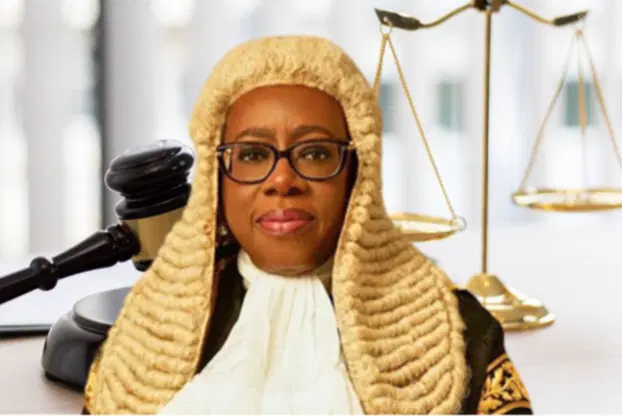With her confirmation by the Senate on September 25, 2024, as the Chief Justice of Nigeria (CJN), Hon. Justice Kudirat Kekere-Ekun steps into her role as the head of the judicial arm of the federal government at a critical juncture. She becomes the 23rd CJN, succeeding Hon. Justice Olukayode Ariwoola, who retired on August 22, 2024. Justice Kekere-Ekun’s appointment comes at a time when the judicial sector’s reputation is at a low ebb, necessitating her immediate focus on restoring public confidence.
The Legacy of Hon. Justice Ariwoola
Justice Ariwoola’s tenure was marked by promises of a “robust” judiciary, but he fell short in addressing corruption within the system. Although President Bola Tinubu upgraded the welfare packages for judicial officers during Ariwoola’s time, the former CJN’s inability to combat corruption significantly tarnished the judiciary’s image. A glaring example is the Supreme Court ruling that permitted the Independent National Electoral Commission (INEC) to disregard its guidelines and electoral laws, undermining democracy by producing results that did not reflect the people’s will.
Challenges Ahead for CJN Kekere-Ekun
One of the pressing challenges for Justice Kekere-Ekun is to restore the judiciary’s role as an impartial arbiter in electoral disputes. The Constitution empowers the judiciary to ensure justice in such matters, but recent trends have seen judges exploiting this role to become the final arbiters of electoral mandates, which is unacceptable. It is essential to reaffirm that power resides with the people, and any usurpation of this power by the government threatens the very fabric of democracy.
Another critical area requiring Justice Kekere-Ekun’s attention is the principle of judicial precedent. Courts must respect the decisions of their peers unless overturned by a higher authority. With advancements in technology, it is now feasible to ensure that all verdicts are communicated to the relevant judicial divisions, promoting the consistent application of judicial precedent.
Justice Kekere-Ekun must also adopt a zero-tolerance policy towards the epidemic of conflicting judgments by judges within coordinate jurisdictions. Such inconsistencies not only erode public trust in the judiciary but also render the justice system ineffective and a source of ridicule.
Recommendations for Judicial Reforms
Efforts should be made to establish a Constitutional Court dedicated to handling political cases, particularly those related to elections. The long-discussed concept of “special courts” to address issues such as drug-related crimes and terrorism should be expedited, with additional judicial personnel appointed to manage these cases. The existing judicial system, likened by Olisa Agbakoba (SAN) to the 1844 model of the English Court, requires modernization for quicker and more effective justice delivery.
A Vision for the Future
As Justice Kudirat Kekere-Ekun embarks on her tenure as CJN, there is hope for meaningful reform within the Nigerian judiciary. Her success will depend on her commitment to restoring public trust, ensuring judicial integrity, and fostering a system that genuinely serves the people. We wish CJN Kekere-Ekun a successful and impactful tenure as she navigates the complexities of the judiciary and strives to uphold justice in Nigeria.

